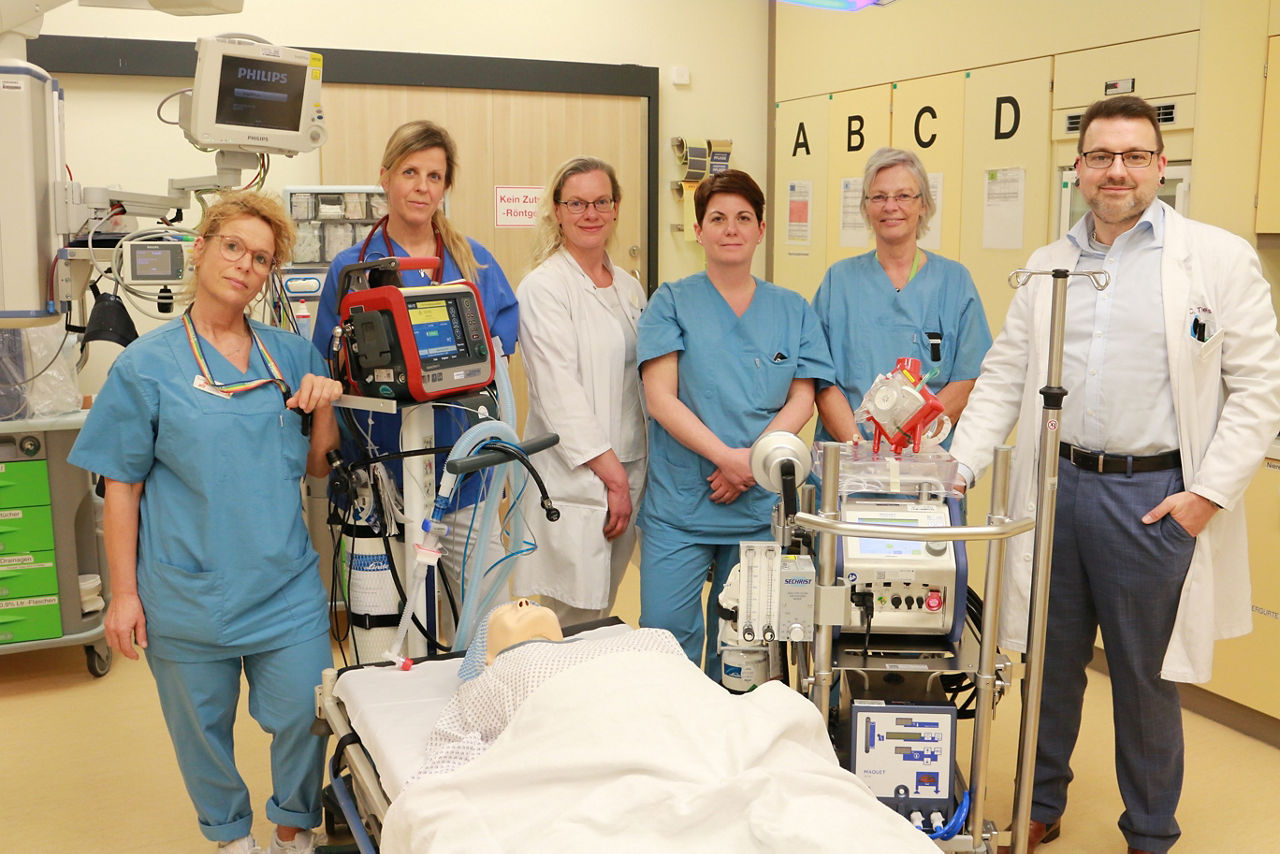
Helios Hospital Hildesheim: Survived after only 24 degrees body temperature
A young man suffering from severe hypothermia and cardiac arrest was admitted to the emergency room at Helios Hospital Hildesheim. Thanks to the use of ECMO and a special procedure, he was saved without permanent damage.
It was still below zero when the young man was found unconscious in Hildesheim. The quickly called ambulance immediately took him to the Helios Clinic. With a body temperature of only 24 degrees Celsius and a cardiac arrest, he was admitted to the emergency room. As all attempts at resuscitation were unsuccessful, support was requested from the anesthesia department in the form of ECMO to warm the body more quickly in the shock room. Thanks to the special ECLS procedure, the patient's circulation was restored after 20 minutes. After a few days in the intensive care unit, he was able to leave the hospital without permanent neurological damage. A success that could by no means be taken for granted.
"Bringing someone back from a situation like this is extremely rare. I've never seen him being discharged as healthy as possible," says Dr. Christian Theis, Director of the Centre for Anaesthesiology and Acting Chief Physician of the Emergency Centre at Helios Hospital Hildesheim. "It was perfect teamwork combined with state-of-the-art medical technology." On the one hand, he is referring to the use of ECMO (extracorporeal membrane oxygenation), a modern heart-lung machine that has made it possible to raise the body temperature more quickly. On the other hand, the ECLS procedure (Extracorporeal Life Support), which can be used in cases of cardiac arrest when conventional resuscitation measures are unsuccessful. The ECMO cannulas are inserted into both the patient's veins and arteries to create a parallel circulatory system that supports the patient's circulation. After around 20 minutes, the body temperature was back to 28 degrees Celsius and the patient could be successfully resuscitated. "To be able to use this technique effectively, the team must have the appropriate expertise. In addition to ECMO, as a certified Cardiac Arrest Center we have the optimal structures," emphasizes Theis.
Discharge after six days
After resuscitation, the patient was transferred to the intensive care unit with ECMO. That same evening, the machine was removed at a body temperature of 37 degrees Celsius and the artery was surgically closed. Only two days later, ventilation weaning was started, circulatory support medication was discontinued and the maintenance anesthesia was ended. "No abnormalities were detected in the subsequent clinical and imaging examinations, so we were able to discharge the patient in good condition after just six days. The fact that he was still quite young at the beginning of his 30s was definitely a favorable factor," reports the head physician. "We are very proud of this achievement and are delighted to be able to offer the people of Hildesheim such cutting-edge medicine."
Read more:
-
More about Helios Hospital Hildesheim
-
Do you need more information about Helios Hospitals or do you want to schedule your treatment?
Please contact our Helios International Office. We will gladly advise you!
